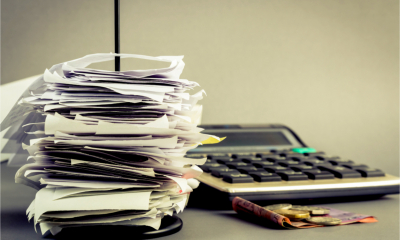
Starting and running a business inevitably involves having to buy things. No matter how resourceful or careful you are, expenses are unavoidable and over the course of a year, costs can mount up significantly.
On the plus side, whether you're running a limited company or you're a self-employed sole trader, freelancer, contractor or ordinary partnership member, you can offset many expenses against your taxable profits to help minimise your tax bills.
Managing your expenses successfully requires good organisation, reliable processes, effort and diligence. Get it wrong and it can turn into a nightmare, while you also risk failing to claim for all of your legitimate business expenses, creating an unnecessary cash flow burden and higher tax bills. So, how can you better manage your business expenses?
1 Find out what expenses you can claim for
Seek tailored professional advice or at very least do your own online research into "allowable expenses" (ie expenses that HMRC allows you to claim). Expenses must all be “wholly and exclusively” for business.
If you're running a business from home, “allowable expenses” can include a proportion of your phone, broadband, heating and lighting costs, your Council Tax, mortgage interest or rent. Allowable expenses can also include stock, materials, insurance and bank charges, office stationery, postage, training, etc. Fuel is a major allowable expense for many small businesses, of course.
Parking, toll fees, train and bus fares are all allowable business expenses, but parking and speeding fines are not. And you cannot charge for fuel or vehicle costs for journeys between your home and usual workplace. Nor can you treat yourself to a daily meal deal on your business, although allowable expenses can include hotel and meal bills if you're away overnight on business.
- Read our guide to allowable expenses for small businesses and sole traders.
2 Have a separate business bank account and card
Sole traders are not required by law to have a separate business bank account, but there are many good reasons for opening one, not least, it enables you to separate your personal and business spending for card and online purchases.
This will save you lots of time and effort when managing your business expenses and help you to better understand how your business spends money, which may enable you to reduce your costs. If you run a limited company, it must have its own bank account, as it is a separate legal entity from you.
- Sign up for an ANNA business account, get a debit card and access a range of time- and cost-saving tools that enable you to better manage VAT, expenses and invoicing.
3 Use a reliable accounting solution
One that connects your business bank account(s), so that transactions are automatically recorded, and all of your expenses and costs are recorded meticulously in real time and categorised for added value and convenience. That way you can compare your outgoings against your income so you can assess your cash flow and the financial health of your business at the tap of a screen or click of a mouse or trackpad.
Your accounting solution should be mobile and offer you access wherever you are. It should also enable you to easily manage your tax admin in line with HMRC rules, especially Making Tax Digital requirements if your business is VAT registered (although other bridging software solutions can enable you to submit your VAT returns using an Excel spreadsheet).
4 Keep your sales receipts well organised
HMRC can request proof of purchase for claimed expenses, so you need to retain sales receipts. These should be kept in a system that makes it easy to categorise and total up your expenses.
Sales receipts must be kept for six years and few people probably want to have to store envelopes stuffed full of them for that length of time. Thankfully, technology provides a better solution. You can now use your smartphone to photograph each receipt, which can be stored safely and more conveniently online in the cloud. Some solutions even enable you to attach an image to the matching transaction in your financial records, which are then updated.
You need to get into the habit of recording and retaining proof of sales receipts as and when you're given them (or as soon after as possible).
5 Assess and minimise your business expenses
With prices rising and often significantly across the board, all businesses are under pressure to manage their expenses and cut costs where possible. Each quarter, at least, you should take time to assess your business expenses and costs. Look for areas where your expenses or costs are rising and try to understand the reasons why.
Always look for ways to reduce your costs, without damaging your productivity or the value that you provide to your customers. Even small savings in a few important places can have a big impact on your cash flow and bottom line.


